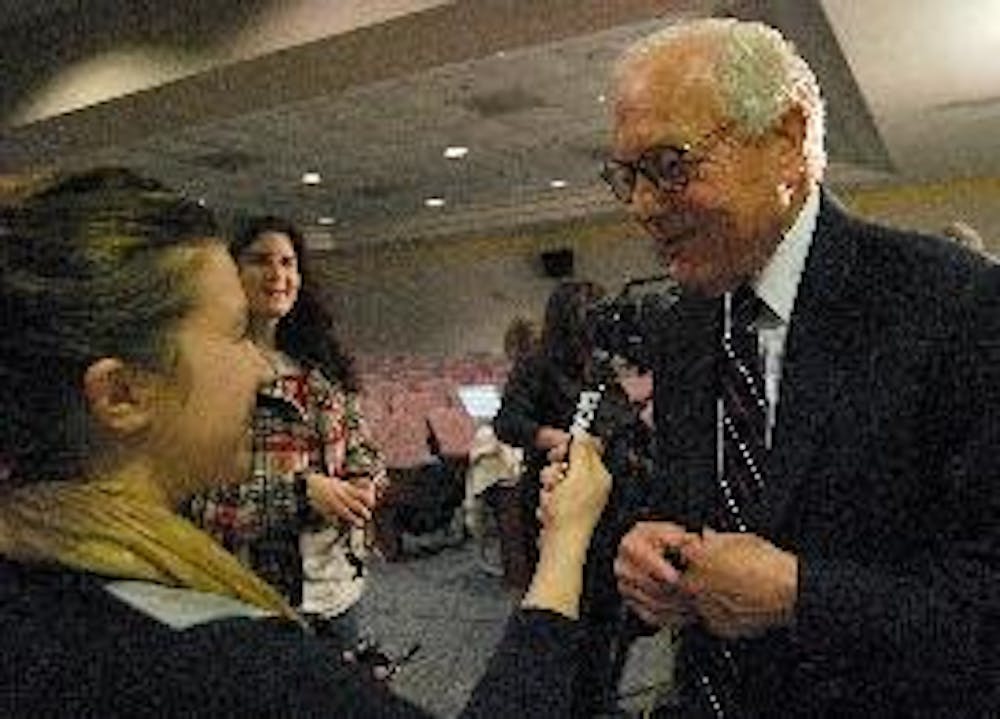The 2008 election was historic, "Face the Nation" host and former "CBS Evening News" anchor Bob Schieffer said during an American Forum event Tuesday night.
| An American ForumCourtesy of WAMU 88.5 FM |
He recalled his experience covering the 1962 enrollment of James Meredith at the University of Mississippi and the riots that broke out to prevent Meredith, a black man, from enrolling in the university. He noted that one of the presidential debates during the general election occurred on the same campus.
The event, "Politics and Pundits: The Promises of the New Presidency and of the Press," highlighted the role the media played in the 2008 election, and the role that the media will play during President-elect Barack Obama's administration. The panel was broadcast live on C-SPAN and WAMU 88.5 FM.
The election included the intermingling of old and new media, according to Tom Rosenstiel, the director of Project for Excellence in Journalism.
The moment Republican presidential nominee John McCain announced Gov. Sarah Palin, R-Alaska, as his running mate, bloggers played an important part in searching public records and unearthing who she was, Rosentiel said.
"A week later the role of bloggers diminished a lot and it was traditional reporters flying up to Alaska and doing shoe leather reporting, talking to people in Alaskan politics and unearthing her record that was not publicly available on Web sites," he said.
Obama also used new media to reach out to younger voters, according to Tony Romm, a senior in the School of Communication, editor of the politics@theEAGLE blog and special projects editor for The Eagle.
"President-elect Obama has demonstrated a key knowledge of technology and how it works," he said. "He's able to use new media to communicate with supporters; [there's] no middle man."
Romm pointed out Obama used text messaging to announce Sen. Joe Biden, D-Del., as his pick for a running mate and the Obama campaign's e-mail listserv that currently has 10 million subscribers.
While Obama used e-mail to connect with his voters, blogs caused the mainstream media to do a lot of fact checking. Panelists discussed this along with blogging's low credibility.
After the Sept. 11 terrorist attacks, many journalists spent most of the day correcting incorrect Internet reports. If they let the rumors stay, they risked mass hysteria, Schieffer said.
"[In the media] we do a lot of chasing things on the internet," he said. "[The Internet] has about the same credibility as someone standing on the corner saying the end is near. [It] has changed everything, [it's] one conveyer of news that has no editor."
Schieffer said both the traditional media and the politicians have to deal with scurrilous rumors that churn around on the Internet.
"Nothing is off the record anymore, somewhere, somehow, someone's going to report it," he said.
Internet rumors have pushed candidates farther away from letting journalists get to know them, Rosenstiel said.
"There is no more letting hair down with reporters," he said. Blogs need to be verified, Schieffer said.
"The minute you say that [a rumored story] couldn't possibly be, it turns out to be right," he said.
You can reach this writer at news@theeagleonline.com.





